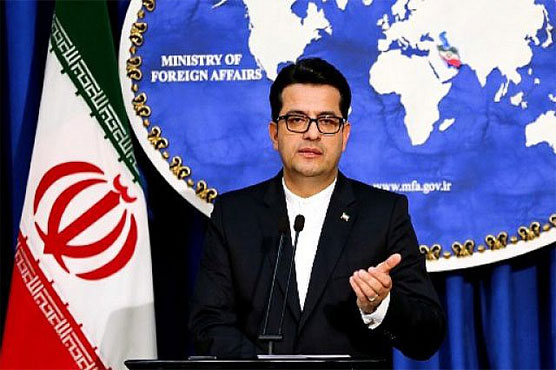Iran rejects French idea of re-opening nuclear talks

Iran on Friday rejected an idea mooted by France of re-opening nuclear talks.
TEHRAN (AFP) - Iran on Friday rejected an idea mooted by France of re-opening nuclear talks, warning that seeking to broaden an existing landmark treaty could lead to its collapse.
President Emmanuel Macron said Thursday that his goal of "regional peace" would require new negotiations, adding that Paris aimed to rein in Iran s nuclear and ballistics activities and its regional influence.
He made the comments at a press conference with US President Donald Trump, who last year withdrew from the multi-lateral agreement known as the JCPOA.
But Tehran s Foreign Ministry Spokesman Abbas Mousavi warned Friday that "bringing up issues that are beyond the JCPOA does not help in saving the JCPOA, but will instead cause increased distrust among the remaining parties" to the deal.
European leaders, bitterly angered by Trump s pullout from the deal in May last year, have struggled to find ways to salvage it in the face of Washington s re-instatement of tough sanctions.
In a statement on the foreign ministry s website, Mousavi said European parties to the deal had been "incapable of acting upon their commitments".
Under such circumstances, he said, making new demands would "only help America in nearing its objective -- the collapse of the JCPOA."
The Joint Comprehensive Plan of Action was an agreement between world powers including France and the United States, offering Iran sanctions relief in return for curbs on its nuclear programme.
Iran had until recently remained in full compliance with the deal, but with the remaining parties struggling to bypass US sanctions, Tehran has reaped few of the promised benefits.
In May, it dropped its adherence to certain limits on enrichment activities under the accord and gave an ultimatum to the remaining parties that it would ditch other commitments unless they delivered on promised sanctions relief.
Trump s administration has also sought tighter controls on Iran s ballistic missile capabilities.
In comments published by the Washington Times on Friday, Secretary of State Mike Pompeo demanded that Iran bring its missile programme "back inside a set of constraints" laid out in UN Security Council Resolution 2231.
Iran s Foreign Minister Mohammad Javad Zarif hit back, tweeting that the US had "violated" the same resolution by withdrawing from the nuclear deal and was "in no position to push a conceited interpretation of its missile provision".
He pointed out that the resolution called on Iran "not to undertake any activity related to ballistic missiles DESIGNED to be capable of delivering NUCLEAR weapons."
"Our missiles are not designed for nukes, which we re not developing," he said.

